Search
Remove Ads
Advertisement
Summary 
Loading AI-generated summary based on World History Encyclopedia articles ...
Search Results
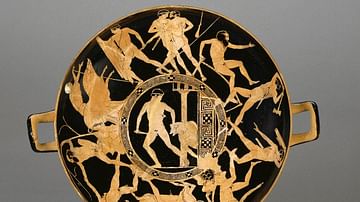
Definition
Theseus
Theseus is a legendary hero from Greek mythology who was considered an early king of Athens. Famously killing villains, Amazons, and centaurs, Theseus' most celebrated adventure was his slaying of the fearsome Minotaur in the labyrinth of...
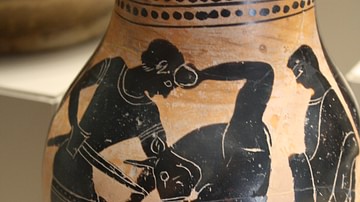
Article
Theseus & the Minotaur: More than a Myth?
Until Sir Arthur Evans unearthed the palace of Knossos, the half-man-half bull killed by Theseus was considered just a popular legend; archaeology changed that perception. King Minos, of Crete, fought hard with his brother to ascend the...
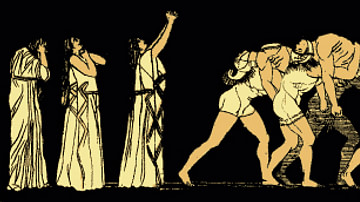
Definition
Suppliants by Euripides
The Suppliants (also given as Suppliant Women) is a Greek tragedy written by Euripides, not to be confused with Aeschylus' tragedy of the same title. Its exact date of production is not known, possibly around 424 to 420 BCE, and may have...
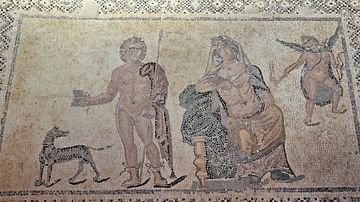
Definition
Phaedra
Phaedra is a princess of Crete and the wife of the Greek hero Theseus in Greek mythology. She is one of the main characters in Euripides' (c. 484-407 BCE) Greek tragedy Hippolytus, which recounts how her love for Thesesus' son Hippolytus...
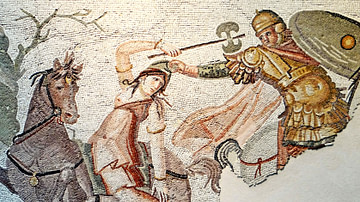
Definition
Hippolyta
Hippolyta, or Hippolyte, was a queen of the Amazons in Greek mythology. A daughter of Ares, the Greek god of war, and Otrera, queen of the Amazons, she is a significant figure in the legends of Hercules and Theseus. In the present day, she...
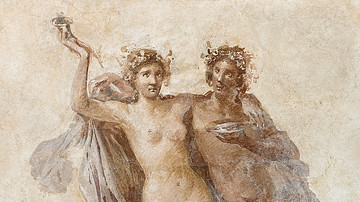
Definition
Ariadne
Ariadne is a figure in Greek mythology, best known for her role in helping Theseus to defeat the monstrous half-man half-bull Minotaur, her half-brother, and escape the Labyrinth, the torturous maze beneath the palace of Knossos in Crete...
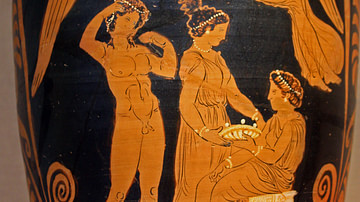
Definition
Hippolytus
Hippolytus is a tragedy written by Euripides (c. 484-407 BCE), one of the great Greek playwrights of the early 5th century BCE. As with many tragedies of the era, the central focus of Hippolytus is humanity's relationship with the gods. Hippolytus...

Definition
Oedipus at Colonus
Oedipus at Colonus was the third play of the Oedipus trilogy written by the great Greek tragedian Sophocles (c. 496 - c. 406 BCE). Although written in the years prior to his death, it would finally be presented by his son Iophon at a dramatic...
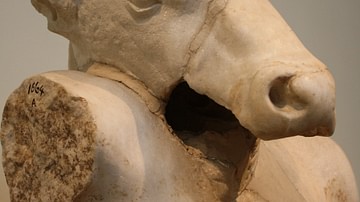
Definition
Minotaur
In Greek mythology, the Minotaur was a monster with the body of a man and the head and tail of a bull. The Minotaur was the offspring of the Cretan Queen Pasiphae and a majestic bull. Due to the Minotaur's monstrous form, King Minos ordered...
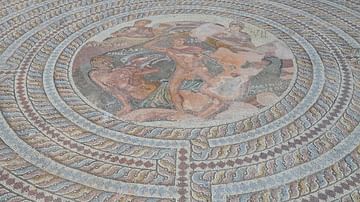
Image
Theseus and the Minotaur Mosaic in Paphos, Cyprus
Mosaic floor depicting the mythical duel between Theseus and the Minotaur in the Labyrinth of Crete, House of Theseus, 3rd-4th century CE. Paphos Archaeological Park, Cyprus.